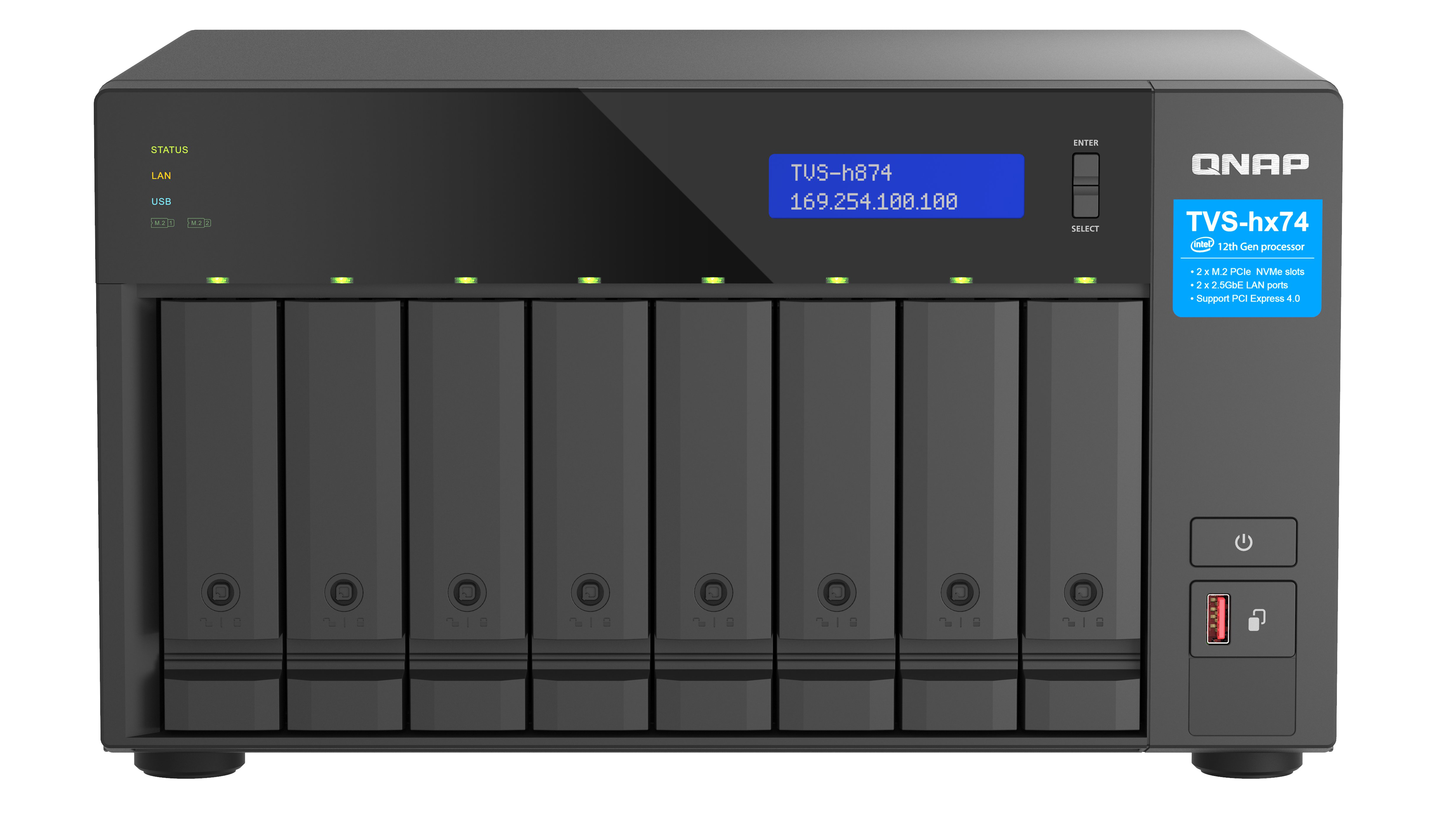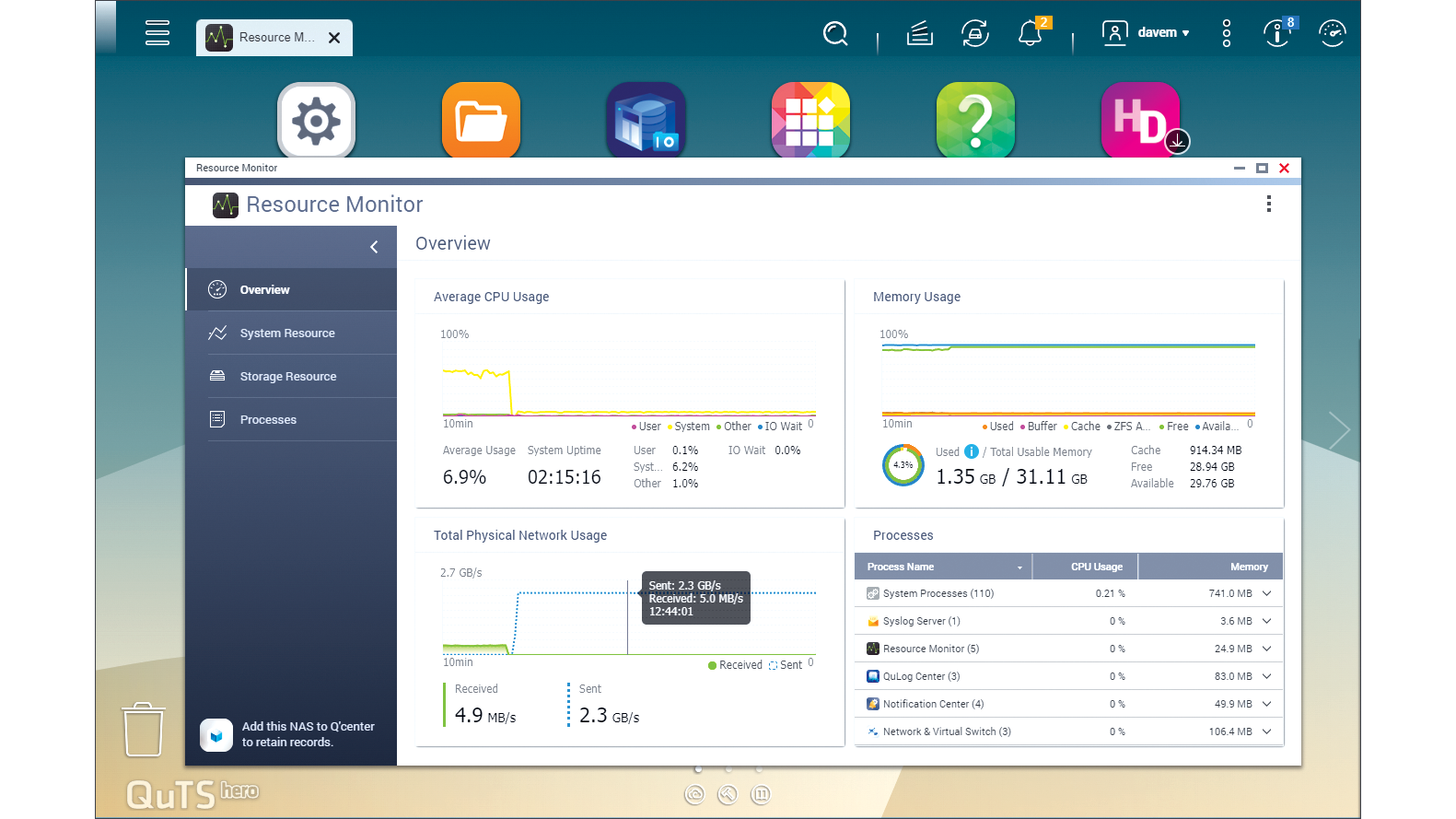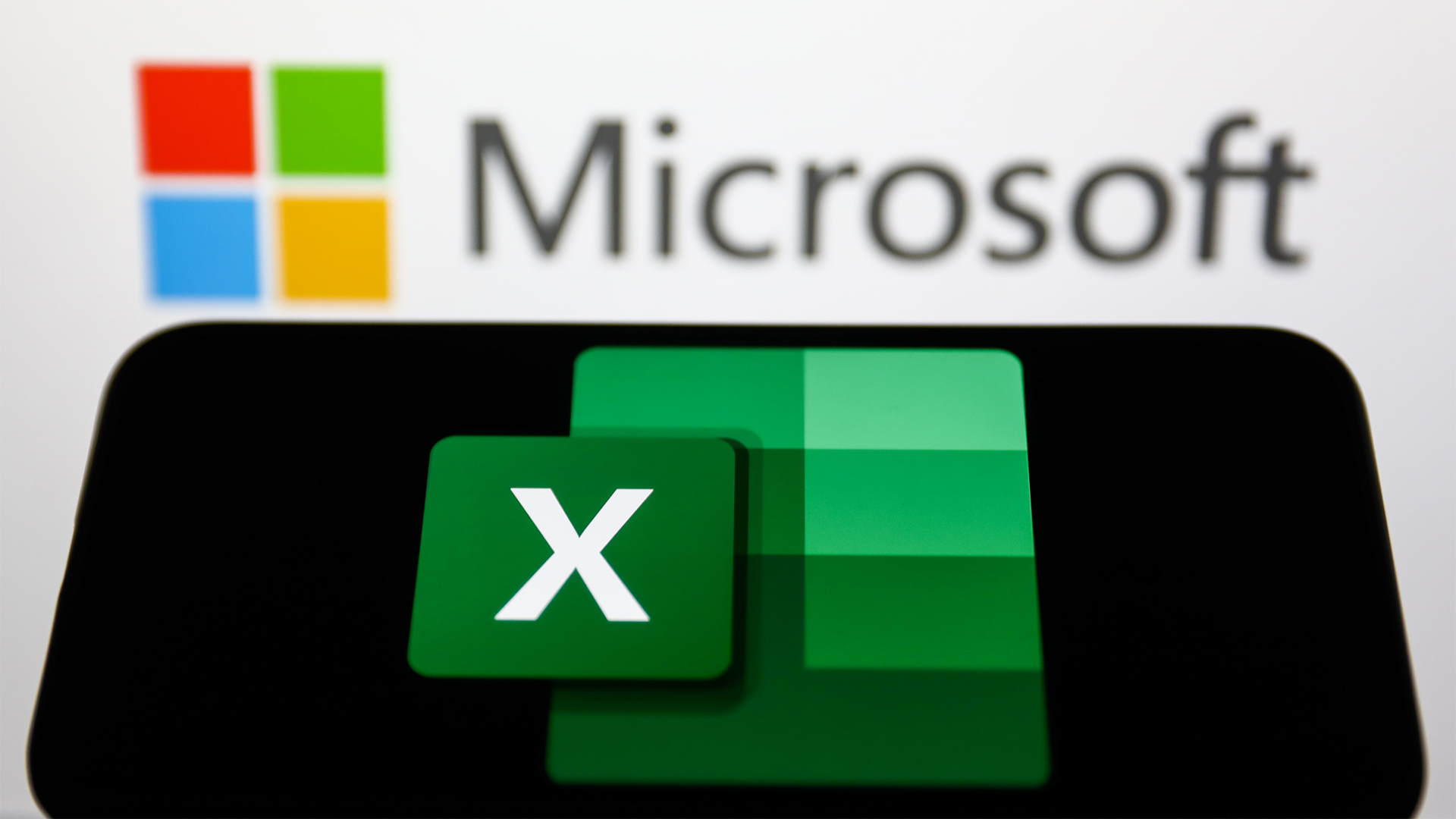Qnap TVS-h874 review: Headline-grabbing NAS and IP SAN performance
The price is high, but this well-endowed desktop NAS delivers enterprise-class storage features

-
+
Swift deployment
-
+
Lots of expansion potential
-
-
Expensive

Qnap has been promoting its advanced QuTS hero operating system, and the TVS-hx74 family of desktop NAS appliances aim to provide SMBs with an entry point into the world of ZFS-based network storage. We reviewed Qnap's flagship TVS-h874 8-bay model, which may look a tad pricey but comes with a mouth-watering hardware spec.
It's powered by a 2.5GHz Intel Core i5-12400 CPU which puts six P-cores on the table and teams them up with 32GB of DDR4 memory, expandable to 64GB. Along with eight front hot-swap LFF/SFF bays, it offers two internal M.2 NVMe PCI-E Gen4 slots, which can be used for caching duties or as a high-performance storage pool.
Storage can be presented over the dual 2.5GbE multi-Gigabit ports; if you need more speed, two PCI-E Gen4 expansion slots are there for 10GbE or 25GbE upgrades. Multimedia is on the menu too, as the CPU's embedded UHD Graphics 730 GPU pipes 4K video at 30Hz to the rear HDMI 1.4b port.
Deployment is swift, with the web console's wizard loading the latest QuTS OS and offering to create a system pool. For testing, we fitted four 14TB WD Red Plus NAS-specific hard disks and used the Storage & Snapshots app to configure a RAID5 pool.

The wizard also offers Qnap's QTS, but you'd be missing out on a lot of data protection features if you choose this. QuTS supports near unlimited snapshots, end-to-end checksums for transparent self-healing of data corruption, triple parity RAID and triple mirroring, inline data deduplication plus compression and the option to apply WORM (write once read many) policies to NAS shares to protect them from tampering.
The appliance starts with 32GB of memory for good reason. QuTS requires at least 16GB for its inline deduplication feature, 10GbE and faster network ports can require up to 32GB for the best performance and it will support SSD cache sizes up to 1TB.
There's no shortage of apps available for QuTS: we counted 129 in the appliance's support page – the same as for QTS. Along with scheduled NAS share and iSCSI LUN snapshots, backup apps include Hybrid Backup Sync (HBS) 3, Qsync Central and HybridMount plus Hyper Data Protector for VMware and Hyper-V.
Sign up today and you will receive a free copy of our Future Focus 2025 report - the leading guidance on AI, cybersecurity and other IT challenges as per 700+ senior executives
The TVS-h874 proved to be very fast indeed in our tests. We upgraded it with a dual-port 10GbE RJ45 Emulex adapter and hooked it up to a Dell PowerEdge T640 Xeon Scalable server running Windows Server 2019.
A NAS share mapped to the server over 10GbE returned Iometer sequential read and write rates both of 9.2Gbits/sec but, more importantly, it delivered random read and write rates of 9.2Gbits/sec. The reason for this is the QuTS ARC (adaptive read cache) and ZIL (ZFS intent log) features are very efficient and effectively negate the need for SSD caches.
Real-world performance was just as good, with copies of a 25GB test file between the NAS and server averaging read and write rates of 9Gbits/sec and 8.7Gbits/sec. Our 22.4GB backup test folder was secured at a speedy 2.5Gbits/sec, while copying our 25GB file to an encrypted share averaged an impressive 8.3Gbits/sec with CPU utilisation only reaching 7%.
IP SAN performance impressed us too, with a 1TB iSCSI target mapped over a 10GbE connection reporting sequential and random read and write rates of between 9.2Gbits/sec and 9.3Gbits/sec. Ramping up the pressure with a dual 10GbE MPIO link to the target saw sequential and random read rates of 18.1Gbits/sec, while write operations settled at 18Gbits/sec and 17.6Gbits/sec respectively.
It's expensive, but the TVS-h874 and its powerful Core i5 CPU deliver headline-grabbing NAS and IP SAN performance. It offers plenty of expansion potential, and Qnap's QuTS hero software provides a heap of enterprise-class data protection features.
Dave is an IT consultant and freelance journalist specialising in hands-on reviews of computer networking products covering all market sectors from small businesses to enterprises. Founder of Binary Testing Ltd – the UK’s premier independent network testing laboratory - Dave has over 45 years of experience in the IT industry.
Dave has produced many thousands of in-depth business networking product reviews from his lab which have been reproduced globally. Writing for ITPro and its sister title, PC Pro, he covers all areas of business IT infrastructure, including servers, storage, network security, data protection, cloud, infrastructure and services.
-
 Trump's AI executive order could leave US in a 'regulatory vacuum'
Trump's AI executive order could leave US in a 'regulatory vacuum'News Citing a "patchwork of 50 different regulatory regimes" and "ideological bias", President Trump wants rules to be set at a federal level
By Emma Woollacott Published
-
 Microsoft Excel is still alive and kicking at 40 – and it's surging in popularity as 82% of finance professionals report ‘emotional attachment’ to the spreadsheet software
Microsoft Excel is still alive and kicking at 40 – and it's surging in popularity as 82% of finance professionals report ‘emotional attachment’ to the spreadsheet softwareNews A recent survey found Gen Z and Millennial finance professionals have a strong “emotional attachment” to Microsoft Excel
By Emma Woollacott Published
-
 LastPass hit with ICO fine after 2022 data breach exposed 1.6 million users – here’s how the incident unfolded
LastPass hit with ICO fine after 2022 data breach exposed 1.6 million users – here’s how the incident unfoldedNews The impact of the LastPass breach was felt by customers as late as December 2024
By Emma Woollacott Published
